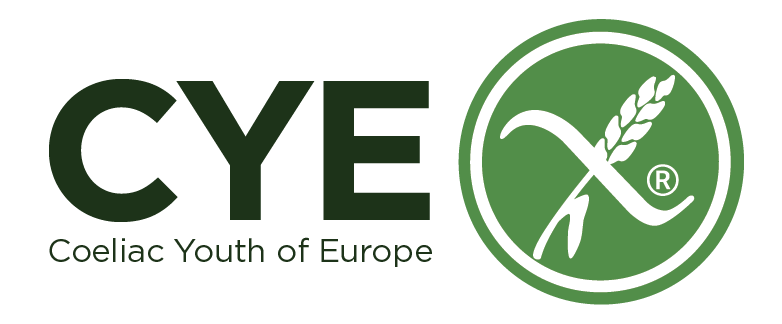Travelling gluten free in Portugal
Are you going on a holiday to Portugal and looking for the best gluten-free spots? Look no further! We have gathered all necessary information for gluten free in Portugal in one easy overview.
Portuguese coeliac dietary explanation
Por questões de saúde eu não posso comer nada que contenha glúten na sua composição, nomeadamente farinha e derivados de trigo, centeio, cevada e aveia.
O meu corpo não tolera este tipo de farináceos (MESMO EM QUANTIDADES MÍNIMAS TAIS COMO MIGALHAS), como tal, não me sirva refeições que contenham estas farinhas ou seus derivados.
Na prática, NÃO POSSO COMER NADA frito em óleos que estejam contaminados com outras comidas que levem estas farinhas, como salgados, panados e pataniscas, que contenha pão (incluindo broa de milho), pão ralado, bolacha, batatas fritas congeladas, massas, farinheira e alheira. Não posso também comer molhos que sejam confecionados com farinha de trigo, cerveja e\ou mostarda.
POSSO COMER milho e farinha de milho (Maizena ou marca Ceifeira), arroz e a sua farinha, tapioca e mandioca, batata, soja, feijão, grão, ervilhas, lentilhas, fruta fresca, legumes e vegetais, leite, manteiga, grelhados e confeções simples de: carne, peixe, ovos, marisco.
Obrigado por ter em atenção às minhas necessidades de saúde e por me informar e preparar comida que eu posso tolerar.
Em caso de dúvida não me sirva a refeição ou contacte a Nutricionista da Associação Portuguesa de Celíacos (+351 91 813 95 11).
In English:
I am suffering from coeliac disease and therefore because of medical reasons I am not allowed to eat any foods which contain gluten-containing cereals or products of these.
This means:
No products from wheat, rye, barley, spelt, kamut and oats as well as products of these like flour, semolina, breadcrumbs, bread, pastry, noodles, dumplings, sauces, cakes, wafers, etc.
Are there any dishes on your menu which are suitable for me or can you prepare a meal without above mentioned foods e.g. to use maize starch or potato flour for the sauce and to prepare the meat, the fish or vegetables without flour or breadcrumbs?
It is also important to use clean kitchen equipment and prepare food in a clean area in the kitchen.
In doubt, please consult the person concerned. Thank you!
Where to buy gluten-free food in Portugal
APC stands for the Portuguese Celiac Association. In Portugal, we have a nationwide network of health shops (Ervanárias/Dietéticas) and pharmacies (Farmácias) that sell gluten-free (GF) products. You can also buy products in several supermarkets and through some online stores. Continente, Pingo Doce and Jumbo are supermarkets with a lot of naturally gluten free products of their brands. See here where you can buy gluten free products: https://www.celiacos.org.pt/pontos-de-venda/
Specific GF products are universally identified with the symbol of the cut stem. Likewise, if a product has gluten in their composition, it is mandatory that the allergen wheat, rye, barley, or oats, is identified in bold in the ingredients list of the product. Some products also have the warning “May contain traces of gluten”.
There are some products that already indicate “gluten free” (in Portuguese is: isento de glúten) like yoghurt, ham, cheese, others. You can also find the APC logo on supermarket products as a way to identify what is gluten-free.
Gluten-free restaurants and hotels in Portugal
All 4 or 5 stars hotels serve GF breakfast if contacted in advance to request the menu.
In Portugal we have some bakeries and restaurants offering gluten-free menus. See here the places that are certified by APC/Biotrab and the others we recommend.
For example, you can have two gluten free pizzas at Telepizza. The hamburger chain H3 also serves grilled burger, with no sauce, which is GF. McDonald’s Portugal already has GF menus available in every store.
Also, the usual GF dining rules should apply when eating out in Portugal. Be careful with fried food (the oil may be contaminated by other food). Of course, you may eat rice, potatoes (be careful with some commercial ones), vegetables, and fruits. Portuguese restaurants serve several grilled dishes along with boiled potatoes, vegetables, and rice, so it should not be difficult to find suitable food. To be sure of what you are eating, inform the waiter that you cannot eat certain grains. State that you have celiac disease and for health reasons (and not because of a fitness diet), you cannot eat “trigo, cevada, aveia e centeio”. State that you can eat “farinha de arroz, milho, batata ou fécula de batata e arroz.”
Tips for gluten free in Portugal
If you would feel more comfortable bringing your own GF foods to Portugal, you may do so. We have no information to indicate that this would be a problem as you enter the country. If you experience a problem bringing food into Portugal, please let us know. If you need assistance regarding GF products, you may call our mobile number on +351 91 921 34 96, or our office number +351 21 753 01 93, during office hours.
See here some general information about tourism in Portugal: http://www.turismodeportugal.pt/pt/Paginas/homepage.aspx
For more information, please contact APC!
Portuguese Coeliac Association
Associação Portuguesa de Celíacos (APC)
Rua Arnaldo Assis Pacheco, Lote 2 – Loja B
1750-396 Lisboa
Phone: +351 217 530 193
APC’s Dietician: +351 918 139 511
Website: www.celiacos.org.pt
E-mail: dietista@celiacos.org.pt

Last update of this Travel Net information: January 2021


 Andorra
Andorra  Austria
Austria  Belarus
Belarus  Belgium
Belgium  Croatia
Croatia  Cyprus
Cyprus  Czech Republic
Czech Republic  Denmark
Denmark  Estonia
Estonia  Finland
Finland  France
France  Georgia
Georgia  Germany
Germany  Hungary
Hungary  Ireland
Ireland  Italy
Italy  Jordan
Jordan  Luxembourg
Luxembourg  Malta
Malta  Netherlands
Netherlands  Norway
Norway  Poland
Poland  Romania
Romania  Serbia
Serbia  Slovenia
Slovenia  Spain
Spain  Sweden
Sweden  Switzerland
Switzerland  Ukraine
Ukraine  United Kingdom
United Kingdom